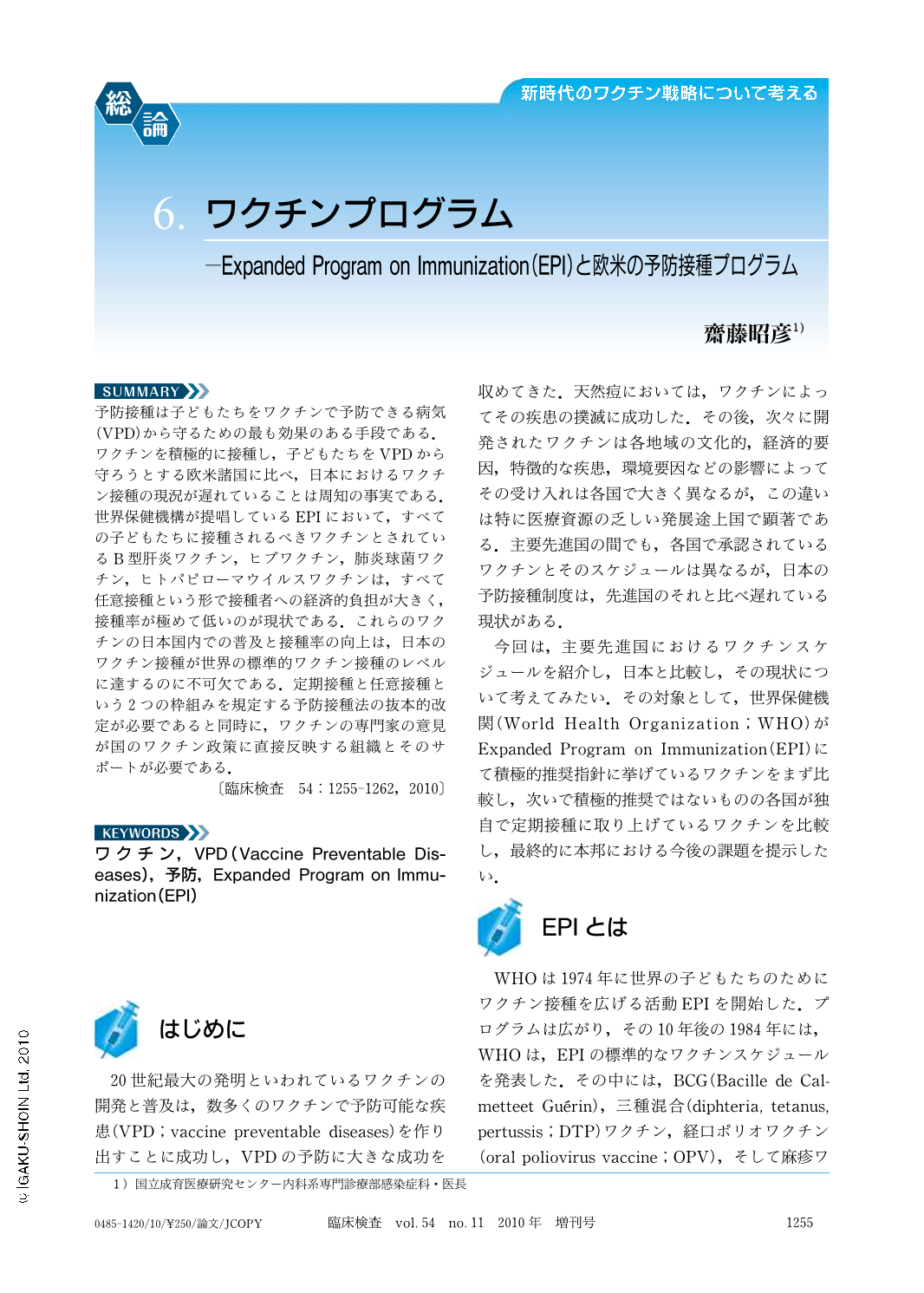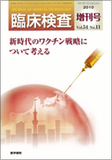Japanese
English
- 有料閲覧
- Abstract 文献概要
- 1ページ目 Look Inside
- 参考文献 Reference
予防接種は子どもたちをワクチンで予防できる病気(VPD)から守るための最も効果のある手段である.ワクチンを積極的に接種し,子どもたちをVPDから守ろうとする欧米諸国に比べ,日本におけるワクチン接種の現況が遅れていることは周知の事実である.世界保健機構が提唱しているEPIにおいて,すべての子どもたちに接種されるべきワクチンとされているB型肝炎ワクチン,ヒブワクチン,肺炎球菌ワクチン,ヒトパピローマウイルスワクチンは,すべて任意接種という形で接種者への経済的負担が大きく,接種率が極めて低いのが現状である.これらのワクチンの日本国内での普及と接種率の向上は,日本のワクチン接種が世界の標準的ワクチン接種のレベルに達するのに不可欠である.定期接種と任意接種という2つの枠組みを規定する予防接種法の抜本的改定が必要であると同時に,ワクチンの専門家の意見が国のワクチン政策に直接反映する組織とそのサポートが必要である.
Immunization is the most effective public health intervention to protect children from vaccine preventable diseases (VPD). Expanded program on immunization by the World Health Organization recommends several important vaccines should be included in the national immunization program (NIP);however, some of the critical vaccines have not included in the current NIP in Japan, including universal hepatitis B vaccine, Haemophilus influenza type B vaccine, Pneumococcal conjugate vaccine, and human papilloma virus vaccine. These vaccines have been provided as a voluntary vaccination in Japan, therefore, the vaccination rates of these vaccines have been low and these VPD has not been controlled in Japan. Because all vaccines included in the NIP are determined by the Immunization Law in Japan, it is critical to modify the law to be flexible to alter the immunization schedule based on the available vaccines. Furthermore, new vaccine policy making system is urgently needed to determine the vaccination policy directed to the government in Japan.

Copyright © 2010, Igaku-Shoin Ltd. All rights reserved.


